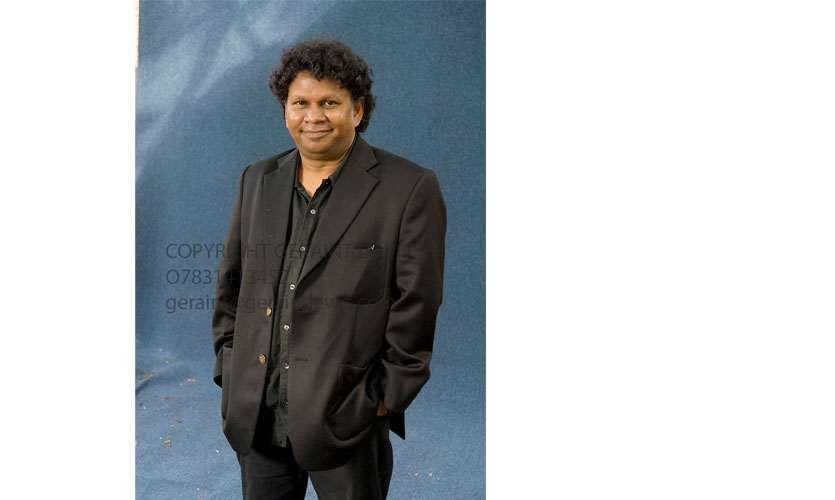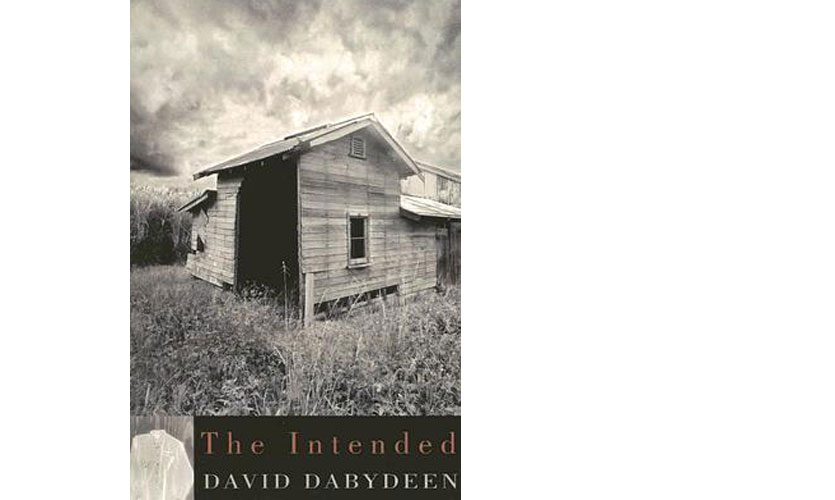David Dabydeen is an award-winning Guyanese-born broadcaster, novelist, poet and academic. David writes about his native country Guyana and the experiences of colonialism and migration. His first novel, The Intended (1991), the story of a young Asian student abandoned in London by his father, won the Guyana Prize for Literature.
1. ‘Broadcaster, novelist, poet and academic’; you’ve got many titles to your name! Tell us what got you involved in writing?
- I don’t know. I suppose, partly, the encouragement of teachers when I was in primary school, but for as long as I can remember, I’ve always wanted to write. Certainly, by 10, I was determined to write as a career, and I made my first Nobel Acceptance speech, to myself, when I was about 16, having composed a sheaf of sentimental teenage doggerel. So where that fierce determination comes from is beyond me, literally. I am surprised by it since I am naturally shy and prone to vacillation.
The academic ambition is easy to explain: the only way out of deprivation in Guyana was by education, so all Guyanese children were pushed, beaten, cajoled, bribed, by parents to excel. Actually, it was brutish, this hounding of children. As to the broadcasting, doing radio and television programmes was a way of avoiding writing and having to face the blank page. Many writers prefer to do something else altogether or something else as a regular or occasional distraction.
2. You wrote your first novel (The Intended) in 1991 but previously you've published collections of prize-winning poetry. What was the transition like to go from writing poetry to writing novels?
- I don't remember any particular aesthetic agonising or wrestling with form. The novel just suggested itself, so it was written. Obviously, there was a lot of learning to be done, tricks of the trade as it were, and the learning never ends since almost everything I write is an act of failure, the inability to have done it better or the realisation that it could have been better. Obviously I am proud of some things I’ve written, otherwise I’d give up, but the sense of failure helps to cleanse you of egoism and remind you of the responsibility to write beautifully.
3. Though you moved to the UK at a very early age, a lot of your books refer to Guyana which is your birthplace. How important is it for you to incorporate your birth country into your work?
- Everything I write has to do with England and Guyana, the latter because my life was formed there, my memories, my boyhood humiliations, my first love, first passions, and deep pleasures like riding a red bicycle or listening to grown-ups making love (I spent a year as a boarder in a hotel-cum-brothel, where my aunt was a cook and caretaker). Our distinguished novelist, Roy Heath, said that although he spent most of his life abroad, ALL his dreams were about Guyana. I suppose you experience raw deprivations living in a colony, then you are catapulted into the developed mother country (Britain) where you still live with deprivations as ethnic minorities, and the tensions between underdevelopment and development excite the mind and provoke creativity. Who knows? They certainly provoke stone-throwing and race riots: London exploded in 1981, with police and protestors in violent confrontation, but the 1980s also saw a different kind of uprising, which was a proliferation of writing by Caribbean people in England, small presses being set up, literary events organised, etc.
6. You are also a university lecturer on literature. Does being an academic play a major role in your work as a writer and vice versa?
- The best thing about working in a University is the time you get to read, and the privileged access to a first-class library. And you get to listen to visiting writers who always inspire. And you get to travel and meet great writers at literary festivals. And the University pays you for these pleasures! I owe my writing career to Cambridge, which gave me a sense of how magical writing was, and how possible for me to attempt it, and then the University of Warwick which has provided for me for the last 33 years. The worst thing about academia is the jargon of theory which can inform creative writing, but also infect it. As Derek Walcott said, he never put Descartes before de horse. And Lawrence wrote about the necessity of one's ‘metaphysic' (in other words, philosophy/ ideology) being subdued to the actual sense of living.
7. If you had to pick between being an academic, a writer or a poet for the rest of your life, which one would you pick?
- The best four letter word in the English Language is the poet. Poetry is the hardest craft, a real challenge of how to achieve clarity and yet convey complex moods that you yourself don’t understand, and then trying to find a line and rhythm to contain and convey all these. So, when you are writing a poem, I think you swear a lot, other four-letter words are evoked, but when the poem is finished, a calmness takes over, a kind of spiritual reverie, the T.S Eliot’s Om Shantih moment.
8. What are you looking forward to the most at the Fairway Galle Literary Festival?
- Listening to writers read and talk. Also, given that many Guyanese are of Tamil stock (and overwhelmingly ignorant about their heritage, because of the passing of centuries, and almost total isolation from Sri Lanka in terms of not having money to travel, and utter loss of ancestral languages and dialects), I will have a secret delight in reconnecting with the past, not out of ‘roots’ sentimentality, but just to have a personal sense of belonging to Sri Lanka in some impossible and minuscule way.
The Fairway Galle Literary Festival (FGLF) returns for its ninth year at the Galle Fort from 24 – 28 January 2018. For more information about the 2018 Festival visit galleliteraryfestival.com/
Read our interviews with the other authors of GLF 2018 below.


0 Comments